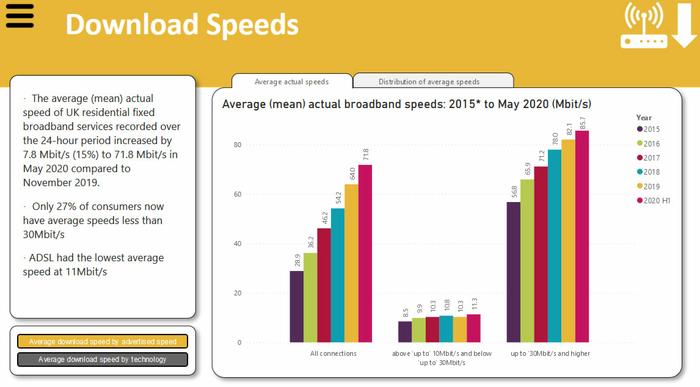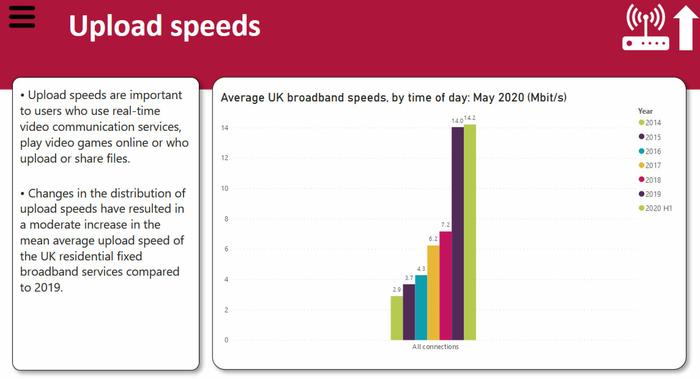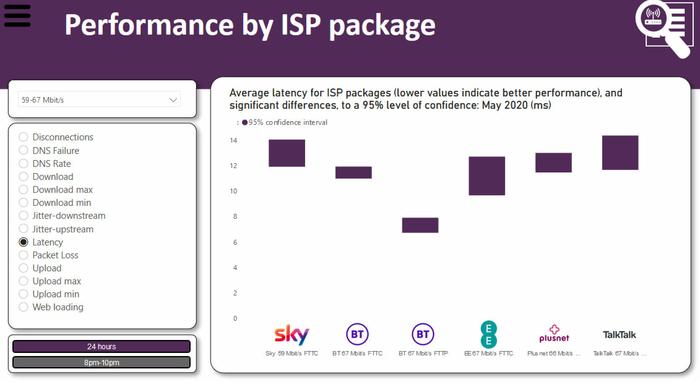Ofcom has shared its latest UK broadband survey dataset. The data is from May 2020 but only became public at the end of November. It is updated every six months, so we won't see the November 2020 dataset until next May…
If you head on over to this Ofcom page you can download the data set (.CSV format) or click on the charting links to the right of the page via the colourful icons. So, let us have a look at the state of affairs for UK home broadband performance, starting with download speeds.
Click to zoom all charts in this article
In the chart above you can see a steady almost linear increase in average download speeds in the UK. The most recent reading of this situation is an average speed of 71.8Mbps for downloads when considering all fixed connection types. The previously reported average was 64.0Mbps – so we have seen a 12 per cent uplift reported in 6 months.
Upload speeds are less well advertised by home broadband sellers but may be very important to you, depending upon the work/leisure activities you get up to at home. The average upload speeds enjoyed a significant gain in the UK in 2019, but the latest figures show little change, an approx 1.5 per cent improvement.
Another thing people care about, understandably, is broadband connection quality. Ofcom has a number of graphs available for you to compare packages from Sky, BT, EE, PlusNet and Talk Talk. In these graphs you will see that EE FTTC is one of the best choices to minimise disconnections, but on the other hand BT FTTP looks to be a clear winner when comparing latency and packet loss metrics.
As ISP Review notes, the Ofcom data is based off data gathered via custom modified routers from SamKnows, which are installed in a few thousand homes across the country. This methodology provides very accurate readings but the sample size isn't fantastic.
















